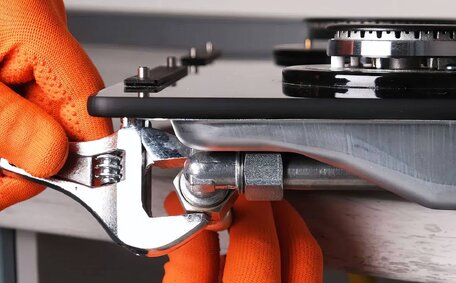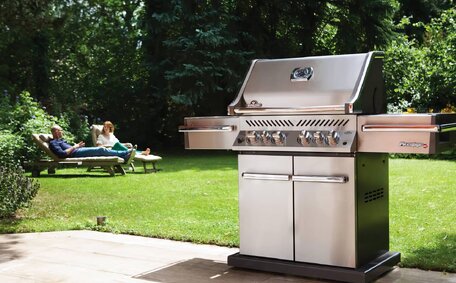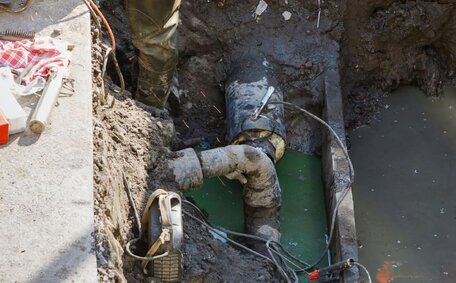
The role of gas fitting in kitchen renovations
When renovating your kitchen, it’s important to engage a licensed gas fitter to safely install, replace or alter any gas appliances and pipes. This ensures
Read MoreThere are a few common issues that can arise with gas lines over time:
Faulty or deteriorating gas lines pose substantial safety risks such as fire, explosion, and carbon monoxide poisoning. They can also lead to expensive gas line repair costs down the track. Paying attention to the warning signs - like a rotten egg smell - and addressing issues promptly is crucial.
If you suspect any problem with your gas line, turn off the main gas valve immediately and call a licenced gas fitter to assess and fix leaking gas line faults. A leaking gas line your household ignores can swiftly spiral into perilous circumstances, so prompt action is vital.
Detecting issues with gas lines early is critical for safety. Be on the lookout for any signs and common symptoms of problems:
Don’t ignore subtle signs or mysterious symptoms in your home. Gas leaks present a significant risk to your health, including carbon monoxide poisoning and explosion hazards. In extreme cases, exposure can lead to coma or even death.
Should you detect any peculiar odours or signs, promptly switch off main gas flow and reach out to a licensed professional. Getting prompt repairs done could save your life, so never hesitate to call in the experts.
Detecting a gas leak quickly is vital for safety. Here are some DIY methods to check for leaks:
While useful for an initial check, these methods don’t confirm or pinpoint a leak. For precise identification and needed repair, professional apparatus and knowledge are indispensable:
A licenced technician will methodically check the gas line your premises rely on to diagnose issues. For enhanced safety, they might suggest fitting carbon monoxide detectors in residential spaces during the course of fixing leaking issues.
Prompt, professional diagnosis ensures any problem, especially when it involves fixing leaking gas, is resolved before it becomes hazardous. Don’t hesitate to arrange an inspection if you suspect any issue.
When attempting DIY gas line repairs, make sure safety is your top priority. Some essential precautions include:
The process of repairing gas lines involves:
Ideally, gas line repairs could take the form of professional intervention by qualified individuals with the right tools and expertise. They possess the skill to pinpoint problems, ensure your system adheres to gas piping regulations, and secure repairs that avert leaks for an extended period.
In the event of a suspected leak, instantly cut the gas supply, vacate the premises, and summon emergency responders, which can done using swift communications. Don’t take risks with do-it-yourself repairs unless you have professional-grade equipment, training and experience.
Gas line issues can escalate quickly, posing severe risks like fire, explosion and carbon monoxide poisoning. With complex repair procedures and stringent regulations, DIY repairs are extremely dangerous unless you have professional training and equipment.
For dependable solutions to gas line leaks your premises in Cecil Hills may face, the proficient team at Cecil Hills Plumbing are your go-to specialists. Our fully qualified and experienced gas fitters provide a complete solution including:
Don’t take risks with DIY efforts - reach out to your local experts at email jobs@cecilhillsplumbingservices.com.au or call 1300 349 338 for licensed assistance with all repairs. For your gas lines and appliances, like the water heater, we provide reliable solutions to restore the integrity and safety of your gas system.
Preventing problematic gas line leaks in the future in your house involves being proactive with inspections, maintenance, and installation quality.
To stay ahead of potential issues, it’s wise to have your gas lines thoroughly inspected every 2 years by a qualified technician. They’ll check pipes, connections, valves and appliances for any wear, corrosion or small leaks in your system.
It’s also important to maintain your gas appliances by following the manufacturer’s directions. This keeps them working safely and efficiently over the long run.
Reputable gas fitters adhere to strict industry standards when installing or replacing old pipes. Employing suitable substances and attachments, ensuring accurate line dimension, and conducting exhaustive examinations can avert line leaks your infrastructure might confront.
Before digging in your yard, calling a free Dial Before You Dig service ensures you know the location of any buried gas pipes. This prevents accidentally hitting and damaging lines when gardening or excavating.
Being vigilant about prevention means you can avoid costly emergency callouts and risks to your safety. Don’t hesitate to call the professionals at Cecil Hills Plumbing on 1300 349 338 for reliable gas line inspections, repairs or installation.
Properly maintaining your gas lines and appliances is crucial for safety and efficiency. Here are some key maintenance tips:
Engage a licenced gas fitter to undertake comprehensive examinations biennially for gas leak your system could exhibit. They’ll check all pipes, fittings, appliances and detectors for leaks, corrosion, blockages or other issues.
Consistently lubricate off gas valve stems using sanctioned valve lubricant. Check regulator vents and appliance connectors for blockages too. This maintains smooth operation.
At the first sign of issues - like rotten egg smells or appliance pilot outages - shut off the main valve and call a professional. Swift response prevents dangerous gas buildup.
Have corroded galvanised or steel pipes replaced with durable polyethylene plastic piping. This prevents hazardous leaks over time.
Following meticulous maintenance procedures reduces emergency repairs, keeps appliances performing efficiently, and most vitally - prevents gas leaks threatening your safety at home. Don’t hesitate to call the experts at Cecil Hills Plumbing on 1300 349 338 for professional assistance maintaining your gas system.
When renovating your kitchen, it’s important to engage a licensed gas fitter to safely install, replace or alter any gas appliances and pipes. This ensures
Read MoreGas line repairs require a licensed plumber to locate any leaks, fix damaged pipes and fittings, and properly seal everything to prevent future issues. Contact our emergency plumbers for safe and proper gas line repairs.
Read MoreDuring emergency plumbing situations, crucial safety precautions include turning off the main water supply to prevent flooding, wearing protective gear to avoid injuries, clearing standing water to minimize damage, and calling a licensed professional plumber for assistance.
Read MoreCecil Hills, 2171 NSW
We will call back as soon as possible.




